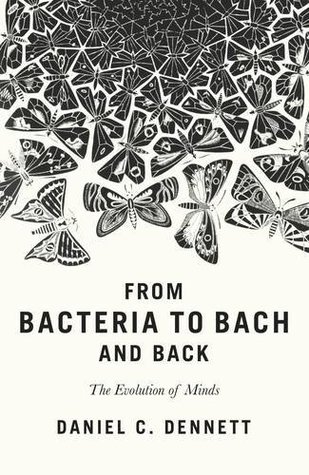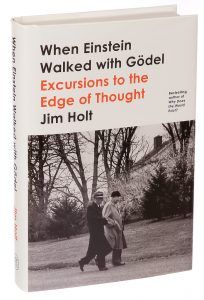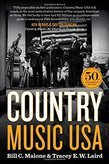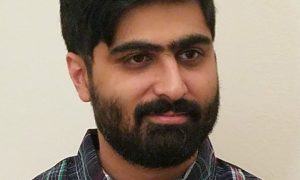Michelle Starr in Science Alert:
 Around 7,000 years ago – all the way back in the Neolithic – something really peculiar happened to human genetic diversity. Over the next 2,000 years, and seen across Africa, Europe and Asia, the genetic diversity of the Y chromosome collapsed, becoming as though there was only one man for every 17 women.
Around 7,000 years ago – all the way back in the Neolithic – something really peculiar happened to human genetic diversity. Over the next 2,000 years, and seen across Africa, Europe and Asia, the genetic diversity of the Y chromosome collapsed, becoming as though there was only one man for every 17 women.
Now, through computer modelling, researchers believe they have found the cause of this mysterious phenomenon: fighting between patrilineal clans.
Drops in genetic diversity among humans are not unheard of, inferred based on genetic patterns in modern humans. But these usually affect entire populations, probably as the result of a disaster or other event that shrinks the population and therefore the gene pool.
But the Neolithic Y-chromosome bottleneck, as it is known, has been something of a puzzle since its discovery in 2015. This is because it was only observed on the genes on the Y chromosome that get passed down from father to son – which means it only affected men.
This points to a social, rather than an environmental, cause, and given the social restructures between 12,000 and 8,000 years ago as humans shifted to more agrarian cultures with patrilineal structures, this may have had something to do with it.
More here. [Thanks to Steven Pinker.]

 Is it possible for two people to simultaneously sexually assault each other? This is the question—rife with legal, anatomical, and emotional improbabilities—to which the University of Cincinnati now addresses itself, and with some urgency, as the institution and three of its employees are currently being sued over an encounter that was sexual for a brief moment, but that just as quickly entered the realm of eternal return. The one important thing you need to know about the case is that according to the lawsuit, a woman has been indefinitely suspended from college because she let a man touch her vagina. What kind of sexually repressive madness could have allowed for this to happen? Answer that question and you will go a long way toward answering the question, “What the hell is happening on American college campuses?”
Is it possible for two people to simultaneously sexually assault each other? This is the question—rife with legal, anatomical, and emotional improbabilities—to which the University of Cincinnati now addresses itself, and with some urgency, as the institution and three of its employees are currently being sued over an encounter that was sexual for a brief moment, but that just as quickly entered the realm of eternal return. The one important thing you need to know about the case is that according to the lawsuit, a woman has been indefinitely suspended from college because she let a man touch her vagina. What kind of sexually repressive madness could have allowed for this to happen? Answer that question and you will go a long way toward answering the question, “What the hell is happening on American college campuses?” I grew up eating
I grew up eating  In an essay
In an essay Jim Holt has a new book out, a collection of essays entitled
Jim Holt has a new book out, a collection of essays entitled 
 The photographer Arthur Fellig, better known as Weegee, lugged his enormous Speed Graphic camera around the nighttime streets of New York City in the 1930s and ’40s, cultivating a persona as stark and as memorable as his tabloid pictures. He was the wisecracking tummler in the rumpled suit, always on the lookout for a car crash or a dead gangster.
The photographer Arthur Fellig, better known as Weegee, lugged his enormous Speed Graphic camera around the nighttime streets of New York City in the 1930s and ’40s, cultivating a persona as stark and as memorable as his tabloid pictures. He was the wisecracking tummler in the rumpled suit, always on the lookout for a car crash or a dead gangster. A
A Country fans no longer resemble the characters in country songs; they are salaried accountants chewing Nicorette in Chevy Tahoes, not railroad linemen spitting Copenhagen through the shot-out windows of a Ford F-150. Their assimilation worries them, and they sometimes overcompensate. “If any of you tuned in to ABC tonight expecting to see the new show Black-ish,” said host Brad Paisley at the 2014 Country Music Association Awards, referring to the sitcom about assimilation anxiety in the suburbs, “this ain’t it. In the meantime, I hope y’all are enjoying white-ish.” The joke had another meaning, too, which Paisley probably didn’t intend: Despite the perception that country is white America’s music, it’s only ever been white-ish. “Country” descended from British and Celtic ballads that crossed the ocean into Appalachia and the South, where singers Americanized the names of the women and the rivers. It was stirred with Baptist hymns, black American folk songs, New Orleans jazz, and—crucially—the twelve-bar blues. Was the sound white? Was it native? The banjo derived from the African gourd-based banjar.
Country fans no longer resemble the characters in country songs; they are salaried accountants chewing Nicorette in Chevy Tahoes, not railroad linemen spitting Copenhagen through the shot-out windows of a Ford F-150. Their assimilation worries them, and they sometimes overcompensate. “If any of you tuned in to ABC tonight expecting to see the new show Black-ish,” said host Brad Paisley at the 2014 Country Music Association Awards, referring to the sitcom about assimilation anxiety in the suburbs, “this ain’t it. In the meantime, I hope y’all are enjoying white-ish.” The joke had another meaning, too, which Paisley probably didn’t intend: Despite the perception that country is white America’s music, it’s only ever been white-ish. “Country” descended from British and Celtic ballads that crossed the ocean into Appalachia and the South, where singers Americanized the names of the women and the rivers. It was stirred with Baptist hymns, black American folk songs, New Orleans jazz, and—crucially—the twelve-bar blues. Was the sound white? Was it native? The banjo derived from the African gourd-based banjar. Few have inspired the Movement for Black Lives as much as James Baldwin. His books that plumb the psychological depths of U.S. racism, notably Notes of a Native Son (1955) and The Fire Next Time (1963), speak to the present in ways that seem not only relevant but prophetic. However, Baldwin’s renewed status as a household name, cemented by the critical success of Raoul Peck’s 2016 film I Am Not Your Negro, makes it easy to forget that for several decades Baldwin fell from public favor.
Few have inspired the Movement for Black Lives as much as James Baldwin. His books that plumb the psychological depths of U.S. racism, notably Notes of a Native Son (1955) and The Fire Next Time (1963), speak to the present in ways that seem not only relevant but prophetic. However, Baldwin’s renewed status as a household name, cemented by the critical success of Raoul Peck’s 2016 film I Am Not Your Negro, makes it easy to forget that for several decades Baldwin fell from public favor. A boy speaks one language at home and another at school. The white kids want to know where he is from. The answer is “here”, same as them, but that’s not what they’re asking. After
A boy speaks one language at home and another at school. The white kids want to know where he is from. The answer is “here”, same as them, but that’s not what they’re asking. After  Many warn that Standard Arabic, or Modern Standard Arabic (MSA), is on the
Many warn that Standard Arabic, or Modern Standard Arabic (MSA), is on the  Would you advise someone to flap towels in a burning house? To bring a flyswatter to a gunfight? Yet the counsel we hear on climate change could scarcely be more out of sync with the nature of the crisis.
Would you advise someone to flap towels in a burning house? To bring a flyswatter to a gunfight? Yet the counsel we hear on climate change could scarcely be more out of sync with the nature of the crisis. What’s in a name? Franklin Delano Roosevelt called himself a Christian, a Democrat, and a liberal. He did not call himself a democratic socialist, or any other kind of socialist. He was, in fact, no socialist at all. Nor was he a conservative or a reactionary, although many on the socialist and communist left charged that he was—including the Communist Party USA, which attacked his New Deal for a time (until Moscow’s political line changed) as American “masked fascization.”
What’s in a name? Franklin Delano Roosevelt called himself a Christian, a Democrat, and a liberal. He did not call himself a democratic socialist, or any other kind of socialist. He was, in fact, no socialist at all. Nor was he a conservative or a reactionary, although many on the socialist and communist left charged that he was—including the Communist Party USA, which attacked his New Deal for a time (until Moscow’s political line changed) as American “masked fascization.” Artificial intelligence (AI) is being embraced by hospitals and other healthcare organizations, which are using the technology to do everything from interpreting CT scans to predicting which patients are most likely to suffer debilitating falls while being treated. Electronic medical records are scoured and run through algorithms designed to help doctors pick the best cancer treatments based on the mutations in patients’ tumors, for example, or to predict their likelihood to respond well to a treatment regimen based on past experiences of similar patients. But do algorithms, robots and machine learning cross ethical boundaries in healthcare? A group of physicians out of Stanford University contend that
Artificial intelligence (AI) is being embraced by hospitals and other healthcare organizations, which are using the technology to do everything from interpreting CT scans to predicting which patients are most likely to suffer debilitating falls while being treated. Electronic medical records are scoured and run through algorithms designed to help doctors pick the best cancer treatments based on the mutations in patients’ tumors, for example, or to predict their likelihood to respond well to a treatment regimen based on past experiences of similar patients. But do algorithms, robots and machine learning cross ethical boundaries in healthcare? A group of physicians out of Stanford University contend that